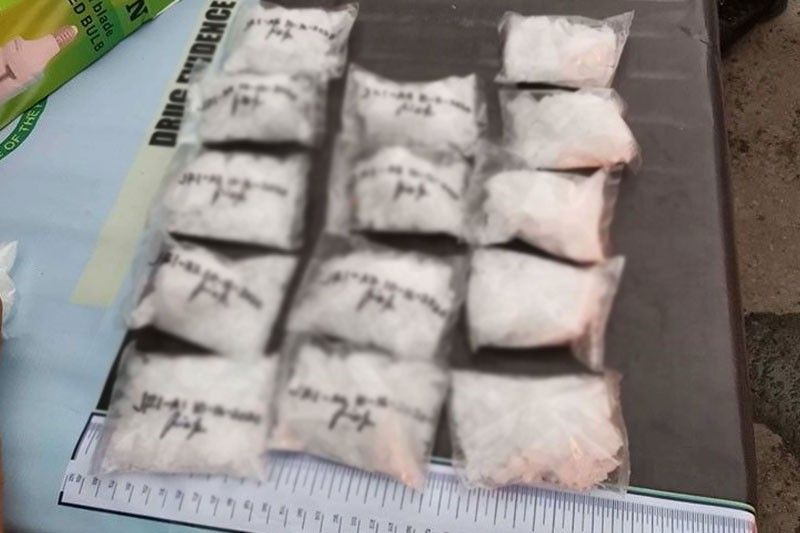East Asia, SEA fastest-growing shabu markets – world report

MANILA, Philippines — Methamphetamine or shabu dominates the illegal drug market in East and Southeast Asia, where the shabu trade is the fastest growing in the world, according to a new report of the United Nations Office on Drugs and Crime (UNODC).
“The Global Synthetic Drugs Assessment 2020” found methamphetamine as the primary illicit drug in East and Southeast Asia where prices have plummeted in the last decade.
The key findings include the manufacture of methamphetamine around the Golden Triangle that includes Myanmar, Cambodia and Vietnam and shows signs of expansion, while other countries in East and Southeast Asia experience a corresponding decline in the number of clandestine laboratories seized.
“This phenomenon strongly indicates a consolidation of methamphetamine production in the Greater Mekong Subregion,” the report said.
Despite record-setting seizures, the purity of methamphetamine is increasing while retail prices are decreasing in East and Southeast Asia.
Significant quantities of crystalline methamphetamine and chemicals continue to be trafficked from East and Southeast Asia to Oceania.
Intensified effort in the trafficking of shabu and associated precursor chemicals by organized crime groups operating in East and Southeast Asia is a major driving force behind the increase in the region’s methamphetamine production and supply in recent years.
The region’s drug market, the report said, is now undergoing a significant transformation with large quantities of methamphetamine, both in tablet and crystalline forms, being manufactured in and trafficked from the Golden Triangle and surrounding countries.
Over the last decade, countries in East and Southeast Asia have collectively witnessed sustained increases in seizures of methamphetamine, a unique trend which has not been observed in any other region in the world.
Between 2011 and 2014, seizures of methamphetamine almost doubled, increasing from 23 to 44 tons. In the following years, however, seizures of methamphetamine almost tripled and increased by more than 80 tons between 2015 and 2018, reaching almost 140 tons in 2019.
Organized crime groups have been increasingly targeting Laos and Vietnam as major transit points for subsequent trafficking of shabu to countries and territories in the region, including China, the Philippines and Taiwan. Outside the Golden Triangle, seizures of crystalline methamphetamine made in Japan and the Philippines indicate continued involvement of transnational organized crime groups from other regions, in particular North America, in the region’s drug trade. These groups target countries with high prices of methamphetamine, such as Australia and Japan.
The report also found that the “ecstasy” market is expanding and diversifying in East and Southeast Asia, but at a slower rate compared to methamphetamine.
Medical marijuana
House members welcomed the decision of the United Nations to remove medical marijuana from the list of what it considers as dangerous drugs.
“This is a major breakthrough since many critics have been using this provision as their reasoning to stop the passage of my medical compassion cannabis House Bill 279,” said Isabela Rep. Tonypet Albano, the brother of incumbent Isabela Gov. Rodito Albano who, as representative in the previous Congress, had filed the original bill seeking the legalization of medical marijuana in the Philippines.
“The bill has been filed since 2014. I have with me the Philippine Cannabis Compassion Society, parents and patients of those who need medical cannabis because they have been very sick,” said Dr. Socorro Reyes, a policy adviser of Rep. Albano.
“They have always looked forward to getting medical marijuana for a cure to their illnesses,” Reyes said with optimism. “We are very hopeful that this will be approved. We hope that this bill will be passed this time around because patients badly need it.”
Another medical marijuana advocate, Rep. LRay Villafuerte of Camarines Sur, said the UN Commission on Narcotics Drugs (CND)’s decision to delete cannabidiol (CBD) should prompt the House committee on health to “take urgent action” on his House Bill 3961.
CBD is legal in 31 of the 50 states of the US and in 59 other countries, while THC (tetrahydrocannabinol) is illegal in almost every part of the world.
The use of medical cannabis is legal among 60 countries across the globe.
Villafuerte clarified that the use of CBD, the non-addictive, non-psychoactive component and non-intoxicating strain of the cannabis plant, is entirely different from THC that gives a “euphoric high.”
“I am calling on the House committee on health chaired by Quezon Rep. Angelina Tan to finally consider the pending HB 3961 and submit it to a vote by the panel, in the wake of game-changing initiatives,” Villafuerte said.
He said the latest UN report in effect bolstered the international recognition and commercial marketing of the medicinal and therapeutic benefits of CBD.
Villafuerte, a supporter of President Duterte’s war on drugs, said the speedy approval of HB 3961 will not run counter to the government’s policy against the illicit drug trade because “CBD is the medicinal strain of the cannabis plant.”
Villafuerte first appealed to the House committee on health to take immediate action on the bill when the Dangerous Drugs Board approved last February the use of CBD for people with epilepsy. — Delon Porcalla
- Latest
- Trending
































